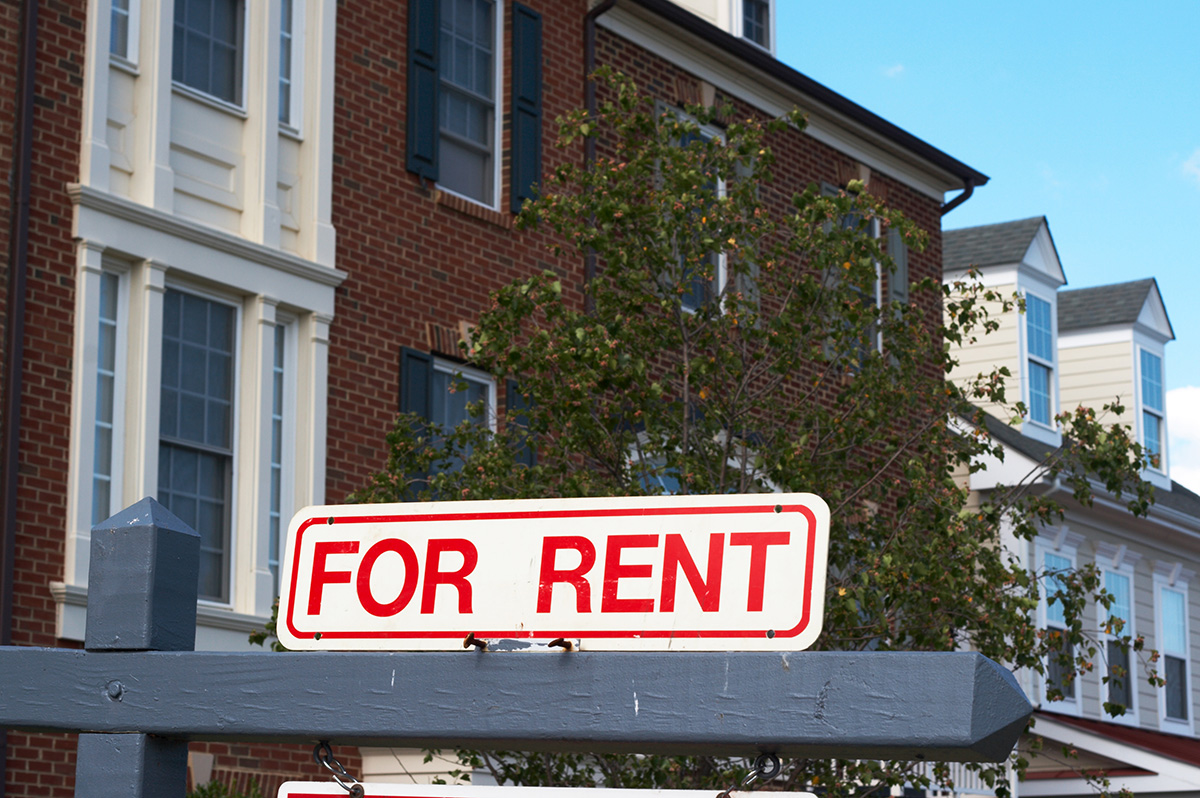Financial
Lesbian entrepreneur defying slow economy
Wigal trains locals in search engine optimization
As the country’s economy stalls and the District’s unemployment numbers hover at 9.5 percent, a local lesbian entrepreneur may have just the ticket to help some of the unemployed find a new path to work.
Nancy Wigal is a certified advanced search engine optimization (SEO) trainer and owner of the Search Engine Academy-D.C. Wigal is tapping into the Washington trend of advanced technology certifications and her search engine optimization classes are helping individuals and companies acquire an edge in Washington’s competitive IT market.
After a career in the U.S. Army and as a civilian employee of the Federal Aviation Administration (FAA) where she restored National Airspace Systems (NAS) for air traffic control and prototyped remote monitoring systems, Wigal is now using her computer and IT knowledge to help people increase their technology skills to find employment or, if they are already employed, to help their employers land government and corporate contracts.
“I started the Search Engine Academy because so many people, even those with lots of IT experience, are mystified and stumped by SEO,” said Wigal, a lesbian who was one of a team of FAA personnel who shut down the National Airspace System on Sept. 11, 2001 to prevent further terrorism in U.S. airspace.
“While search engine optimization is not rocket science, it has technical elements that tend to scare the non-technically oriented. But those elements still have to be addressed if companies want to stay competitive. Most optimization does not involve coding or programming so course-takers are immediately certified to apply the SEO techniques on their current employer’s website or to pitch their skill to a potential employer.”
Wigal discovered there were multiple Search Engine Academies in the U.S. and around the world but none in her home city of Washington, D.C. In 2009 she purchased the franchise and established the Search Engine Academy-D.C. to help Washington-area businesses, non-profits and government agencies attract and convert more traffic to their websites.
“I’ve always known that I love to instruct,” said Wigal. “The thought of training others to do their own SEO was very appealing. I love SEO, and I really enjoy teaching, so it seemed like a natural combination for me.”
When asked what advice she would give to other LGBT entrepreneurs trying to energize small start-ups, Wigal suggested finding friends and business colleagues who can lend support.
“Find people who will support you, but who are realists with their own areas of expertise,” said Wigal. “Starting a business is hard work. You have to provide the motivation and initiative to get things done on a daily basis. It helps if you have friends who have applied their ideas for getting a small business underway, and have found success.”
“Additionally, I would say you have to do your homework to determine if there is actually a need for your business solution,” added Wigal. “And, if you can’t, or don’t want to do something, or are weak in an area of managing your business, either hire someone to do the work for you in-house, or outsource it.”
“Taking my own advice, I now have a colleague working with me,” said Wigal. “I am teaming with Melissa Ward, also a lesbian small business owner, to help provide the SEO trainings. Her wide and diverse training background in the public and private sector including the UN, the U.S. Department of State and the U.S. Military helps both our businesses since we can utilize our combined skill sets. Small business teaming is the smart business model of the future.”
“Search Engine Academy-DC is working because we are able to identify problem websites that are not performing for their owners. Their websites are not found by Internet search engines,” said Wigal. “The solution is to apply search engine optimization so the business sites come up higher in search engine results. As more and more businesses become virtual — and many bricks and mortar businesses now realize how much they need a competitive Internet presence — they must do everything they can to make their website visible to as many targeted prospects as possible.”
When not teaching Search Engine Academy-DC courses or providing SEO consulting for clients, Wigal can be found skippering her 20-foot sailboat, “Baydream,” on the Chesapeake Bay. She is also an active long-time member of the Capital Area Gay & Lesbian Chamber of Commerce (CAGLCC).
Colleen Dermody is a freelance writer and owner of Out to Market Communications. Reach her at [email protected].
Real Estate
Top buyer-friendly markets for the LGBTQ community
Home should be a place where you can be fully yourself

Buying or selling a home is one of the most meaningful financial and emotional decisions a person can make. For LGBTQ+ individuals and families, that journey can also come with unique considerations — from finding truly inclusive neighborhoods to working with professionals who understand and respect who you are.
The good news? Across the United States, there are increasingly buyer-friendly housing markets where LGBTQ+ home buyers and sellers can find opportunity, affordability, and community. When paired with the right representation, these markets can offer not only strong financial value, but peace of mind.
For more than 30 years, GayRealEstate.com has been the leading source of LGBTQ+ real estate representation, helping LGBTQ+ buyers and sellers connect with vetted, LGBTQ+ friendly real estate agents who understand the nuances of fair housing, legal protections, and inclusive service.
Below, we explore top buyer-friendly markets for the LGBTQ+ community, along with practical tips to help you navigate the process with confidence.
What Makes a Market Buyer-Friendly?
A buyer-friendly market isn’t just about lower prices — especially for LGBTQ+ home buyers. It often includes:
- Increased housing inventory (more choices, less pressure)
- Slower price growth or stabilized pricing
- Greater negotiating power for buyers
- Established or emerging LGBTQ+ communities
- Local protections and inclusive policies
- Access to LGBTQ+ friendly real estate agents and resources
Markets that combine affordability with inclusivity can be especially attractive for first-time gay home buyers, same-sex couples, and LGBTQ+ families planning for long-term stability.
Top Buyer-Friendly Markets for LGBTQ Home Buyers
1. Austin & San Antonio, Texas
Once known for extreme competition, many Texas metros have shifted into more buyer-friendly territory due to increased inventory.
Why it works for LGBTQ+ buyers:
- Strong LGBTQ+ communities, especially in Austin
- More negotiating leverage than in prior years
- Diverse neighborhoods at varying price points
Tip: Texas does not have statewide LGBTQ+ housing protections, making it especially important to work with an experienced LGBTQ+ friendly realtor through GayRealEstate.com.
2. Columbus & Cincinnati, Ohio
Ohio cities continue to attract buyers looking for value without sacrificing culture or inclusivity.
Why it works:
- Lower median home prices
- Growing LGBTQ+ populations
- Strong healthcare, education, and job markets
These cities are particularly appealing for LGBTQ+ buyers relocating from higher-cost coastal markets.
3. Richmond, Virginia
Richmond has become a standout for LGBTQ+ home ownership thanks to affordability, history, and progressive growth.
Highlights:
- Inclusive local culture
- Buyer-friendly price trends
- Walkable neighborhoods popular with LGBTQ+ professionals
4. Minneapolis–St. Paul, Minnesota
The Twin Cities consistently rank high for LGBTQ+ quality of life and legal protections.
Why LGBTQ+ buyers love it:
- Strong anti-discrimination laws
- Stable home values
- Excellent resources for LGBTQ+ families
Minnesota offers one of the safest environments for LGBTQ+ home buyers and sellers navigating the real estate process.
5. Jacksonville & Tampa Bay, Florida
Florida remains complex for LGBTQ+ buyers, but some metros still offer strong buyer opportunity.
What to know:
- Increased inventory = more negotiating power
- Coastal lifestyle at lower cost than South Florida
- Local LGBTQ+ communities continue to grow
Because statewide protections vary, partnering with a GayRealEstate.com LGBTQ+ friendly real estate agent is essential.
Finding LGBTQ-Friendly Neighborhoods
Not every “affordable” neighborhood is inclusive — and safety, comfort, and belonging matter.
When searching for LGBTQ+ friendly neighborhoods:
- Look for visible LGBTQ+ organizations, events, and businesses
- Research local non-discrimination ordinances
- Ask your agent about lived experiences, not just statistics
- Talk to neighbors and local LGBTQ+ groups
Agents in the Gay Real Estate Network often provide insight that listing data alone cannot.
The Importance of LGBTQ Real Estate Representation
While fair housing laws exist, LGBTQ+ housing discrimination still happens — sometimes subtly, sometimes overtly.
Working with an LGBTQ+ friendly real estate agent helps ensure:
- Respectful communication
- Advocacy during negotiations
- Awareness of legal protections
- A safer, more affirming experience
GayRealEstate.com has spent over three decades building the most trusted network of gay realtors, lesbian real estate agents, and LGBTQ+ friendly real estate professionals nationwide.
Legal Protections Every LGBTQ Buyer and Seller Should Know
Federal protections now include sexual orientation and gender identity under the Fair Housing Act, but enforcement and local laws vary.
Before buying or selling:
- Understand your state and local protections
- Know how to document discriminatory behavior
- Work with professionals who take advocacy seriously
- Use trusted LGBTQ+ real estate resources
GayRealEstate.com agents are experienced in helping clients navigate these realities with confidence.
Tips for LGBTQ Home Buyers & Sellers
- Get pre-approved early to strengthen your buying position
- Interview agents and ask direct questions about LGBTQ+ experience
- Don’t ignore your instincts — comfort matters
- Plan long-term: community, schools, healthcare, and protections
- Use LGBTQ+-specific resources rather than generic searches
Buyer-friendly markets create opportunity — but representation creates security.
Whether you’re a first-time gay home buyer, a same-sex couple relocating, or an LGBTQ+ seller preparing for your next chapter, choosing the right market and the right representation makes all the difference.
For over 30 years, GayRealEstate.com has been the trusted leader in LGBTQ+ real estate, connecting buyers and sellers with professionals who understand the importance of inclusion, advocacy, and respect.
Your home should be more than a place to live — it should be a place where you can be fully yourself.
Scott Helms is president and owner of Gayrealestate.com.
Real Estate
Stress-free lease renewals during winter months
A season when very few tenants typically move

January has a way of waking everyone up. After weeks of holiday noise, travel, family visits, and a general blur of activity, the new year arrives with its usual mix of resolutions, optimism, and responsibility. People start looking at their calendars again. To-do lists reappear. And tucked away in there is something many tenants didn’t give much thought to in December, their lease renewal.
Renewals in winter matter more than most people realize. It is a season when very few tenants typically move. The weather is unpredictable, schedules are tight, and most people are trying to regain their footing after the holidays. Because of this, renewal conversations tend to be more productive and more grounded.
Many landlords think of spring and summer as the heart of leasing season, and while that’s certainly when moves are most common, winter renewals hold their own kind of importance. A well-timed renewal does more than keep a unit occupied. It provides predictability for the year ahead, strengthens relationships, and reduces the costly turnover that smaller landlords want to avoid.
In my experience, tenants who might hesitate during another time of year are often relieved to secure housing before the pressures of spring and summer begin. Uncertainty is one of the prime causes of unnecessary turnover. If tenants don’t hear from their landlord, they often start browsing listings “just in case,” or asking friends about other options. Once that door is opened, it can be hard to close. Initiating the renewal process early helps anchor tenants before doubts start creeping in.
Tenants often make clearer decisions in January than they would in November or December. During the holidays, people are distracted and stretched thin; emails are skimmed, not absorbed; and anything involving planning often gets deferred until “after the new year.” When tenants return home in January, they have a better sense of their plans, their budget, and their needs for the coming months. This makes it a much easier moment to start or restart a renewal conversation.
The practical reality is that most tenants don’t want to move in the winter. Who wants to haul furniture across icy sidewalks or deal with last-minute moving delays due to storms? Beyond the weather, January is a time when people are reorganizing finances, filing paperwork, and settling into routines. The thought of a major transition simply doesn’t fit. Landlords can use this natural reluctance to create a smoother, more collaborative renewal process.
One thing I’ve learned over the years is that clarity is a landlord’s best tool. Tenants don’t need lengthy explanations, legal jargon, or complicated attachments. They simply want to know:
- Are the terms changing?
- If so, how?
- What does their timeline look like?
- Would the landlord consider another set of terms?
A concise, well-laid-out renewal offer does two things. First, it demonstrates transparency, which builds trust. Second, it keeps the conversation focused and productive. When tenants understand exactly what’s being proposed, there is less back-and-forth, fewer misunderstandings, and a quicker path to a signed agreement.
Tenants are more receptive when they feel they’re being treated fairly and openly. If there’s a rent adjustment, a brief explanation helps tenants see the reasoning behind it, such as increased operating costs, significant maintenance completed during their stay or alignment with the market.
Lease renewals are moments of connection. The best landlord-tenant relationships are built over time through small exchanges, transparency, and mutual respect. Renewal season offers an opportunity to reinforce that.
A simple acknowledgement of the tenant’s care for the home or their timely payments can set a positive tone. Even a short note of appreciation signals that you see them not as a lease term, but as a partner in maintaining the property. These gestures cost very little but create a sense of goodwill that carries through maintenance requests, policy reminders, and everyday communication.
Many landlords underestimate how much tenants value being treated as individuals rather than account numbers. A thoughtful, personal touch during the renewal process can make a tenant feel recognizednand more inclined to stay.
Renewals aren’t only about securing another term lease.They’re also a natural moment to check in on the overall health of the property and the tenant’s experience. J anuary provides a quiet space to step back and ask:
• Are there maintenance concerns the tenant hasn’t mentioned yet or that have not been fully resolved?
• Is the property due for upgrades or any preventative work?
• Are there responsibilities or expectations worth revisiting?
These conversations don’t need to be long or formal, but they help prevent the small issues of one year from becoming the larger problems of the next. A tenant who feels heard is more likely to take good care of the home, communicate proactively, and renew again in future years.
While landlords must maintain structure and protect their assets, a bit of flexibility can go a long way during the renewal process. Tenants are often rebalancing budgets after holiday spending. Offering digital signatures, Having brief calls to clarify terms, being flexible, or a few extra days to make a decision can ease stress without compromising the landlord’s position.
Flexibility is about recognizing human realities. Most tenants appreciate being treated with patience and professionalism, and often reward that consideration with prompt decisions and smoother communication. There are many reasons why a full year renewal may not coincide with their plans. Being able to work out mutually agreeable renewal terms makes the solution a win for both parties.
For landlords, especially smaller ones, stability is the foundation of successful property investing. A vacant unit, even briefly, costs more than most people realize. There are marketing expenses, cleaning, repairs, lost rent, and the unpredictable timeline of finding the right new tenant. By contrast, securing a renewal with an existing reliable tenant protects cash flow, reduces risk, and creates predictability in planning.
January renewals, when handled well, deliver this stability right at the beginning of the year. They give landlords a clear roadmap for budgeting, maintenance scheduling, and forecasting. They also give tenants the security of knowing exactly where they stand, which reduces stress on both sides.
A lease renewal may seem like a small moment in the life of a property, but in practice, it shapes the experience of the year ahead. When the process is organized, honest, and respectful, it sets a tone that carries through every interaction until the next renewal date.
January is a time to consider leaning into this approach. The pace is slower, the mindset is clearer, and both landlord and tenant are ready to step into the year with more intention. A renewal handled thoughtfully now paves the way for a smoother, quieter, more predictable twelve months, something every landlord and every tenant can appreciate.
Scott Bloom is owner and senior property manager at Columbia Property Management.
Real Estate
Child- and pet-proofing your home for the holidays
It isn’t about being perfect but about being prepared

The holidays are meant to be joyful, cozy, and full of laughter — but if you have young children or pets, they can also feel a little chaotic. Twinkling lights, shiny decorations, guests coming and going, and tables full of tempting food can turn your home into a wonderland of curiosity and mischief. The good news? With a little thoughtful planning, you can keep the holiday magic alive while making your home safer for everyone who lives there.
There’s something oddly comforting about movies where animals go to war with holiday decorations, turning carefully strung lights and perfectly placed ornaments into chaos. Whether it’s a mischievous dog tangled in tinsel or a curious cat launching a full-scale assault on a Christmas tree, these scenes tap into a universal experience for pet owners.
The humor comes from the contrast: the human characters are trying to create warmth, tradition, and picture-perfect cheer, while the animals see the decorations as toys, obstacles, or personal enemies. The resulting destruction — trees tipping over, ornaments shattering, lights blinking out—feels exaggerated but relatable, especially during the already hectic holiday season.
Let’s start with decorations because they tend to be the biggest attraction. Ornaments sparkle, garlands dangle, and everything seems designed to be touched, pulled, or tasted. If you have little ones or pets, consider placing your most fragile ornaments higher on the tree and using shatterproof options on the lower branches. Tinsel and ribbon may look festive, but they can be dangerous if swallowed, so skipping them or keeping them well out of reach is a simple way to reduce risk without sacrificing style.
Holiday lights are another favorite fascination. Before hanging them, take a few minutes to inspect each strand for frayed wires or broken bulbs. Secure cords along walls or behind furniture so they’re harder to grab or chew and unplug them when you leave the house or head to bed. Not only does this help prevent accidents, but it also gives you one less thing to worry about during a busy season.
The Christmas tree itself can become a focal point for exploration. Make sure it’s sturdy and well-anchored so it doesn’t tip if a toddler tugs on a branch or a pet decides to investigate. If you use a real tree, cover the water base since tree water can contain additives that aren’t safe if consumed. For artificial trees, keep an eye out for loose pieces or needles that could become choking hazards.
Food is a big part of holiday celebrations, and it’s also one of the most common sources of trouble. Many traditional treats—like chocolate, grapes, raisins, alcohol, and foods containing xylitol—are dangerous for pets. Keep plates and serving dishes up high, secure the trash can, and gently remind guests not to slip pets or kids “just a little bite” without checking first. For children, be mindful of hard candies, nuts, and small treats that could pose choking risks.
Candles and fireplaces add warmth and charm, but they deserve extra caution. Flameless candles are a wonderful alternative if you want ambiance without worry. If you do use real candles, place them well out of reach and never leave them unattended. Fireplaces should always have a sturdy screen or gate, especially with crawling babies or curious pets nearby.
Holiday gatherings bring wonderful energy into your home, but they can also create new challenges. Doors opening frequently make it easier for pets to slip outside, so consider setting up a quiet, comfortable space where they can relax during busy get-togethers. This can help reduce stress for them and give you peace of mind. For children, stair gates, locked cabinets, and clear boundaries can help prevent accidents when there’s extra excitement in the air.
New toys and gifts are another thing to watch closely. Packaging, twist ties, plastic wrap, and especially button batteries should be cleaned up promptly. These items are easy to overlook in the excitement of gift-opening but can be dangerous if swallowed. Taking a few minutes to tidy up as you go can make a big difference.
Lastly, try to keep routines as steady as possible. The holidays naturally disrupt schedules, but familiar mealtimes, naps, walks, and bedtime rituals help children and pets feel secure. A calmer household often means fewer accidents and a happier experience for everyone.
At the end of the day, child- and pet-proofing your home for the holidays isn’t about being perfect but about being prepared. A few small adjustments can help you relax, enjoy your guests, and focus on what truly matters: creating warm, happy memories with the ones you love. When your home feels safe, the holidays feel even sweeter.
Valerie M. Blake is a licensed Associate Broker in D.C., Maryland, and Virginia with RLAH @properties. Call or text her at 202-246-8602, email her at [email protected] or follow her on Facebook at TheRealst8ofAffairs.
-

 Real Estate5 days ago
Real Estate5 days agoTop buyer-friendly markets for the LGBTQ community
-

 Virginia5 days ago
Virginia5 days agoAbigail Spanberger sworn in as Va. governor
-

 Autos5 days ago
Autos5 days agoHot rod heaven: Chevy Corvette, Dodge Charger
-

 Virginia4 days ago
Virginia4 days agoTwo gay candidates running in ‘firehouse’ Va. House of Delegates primary in Alexandria














